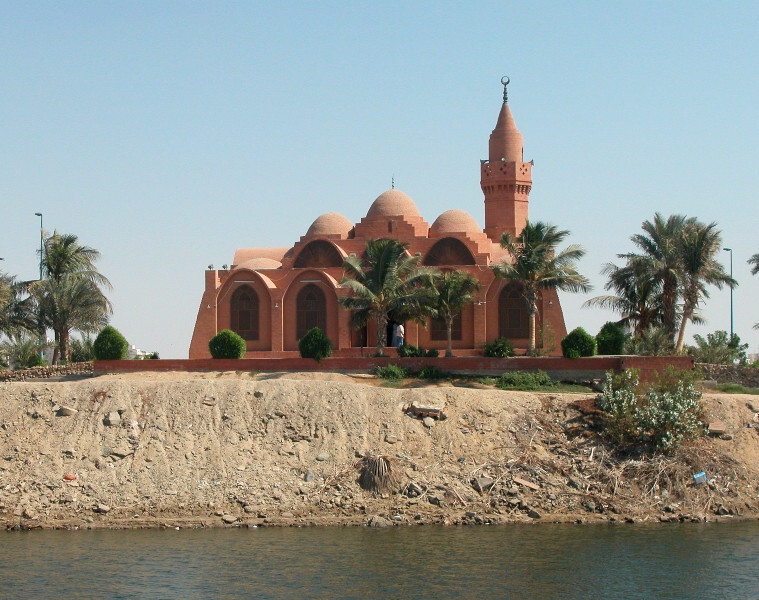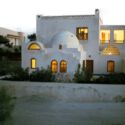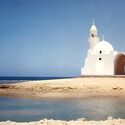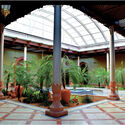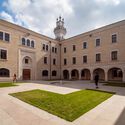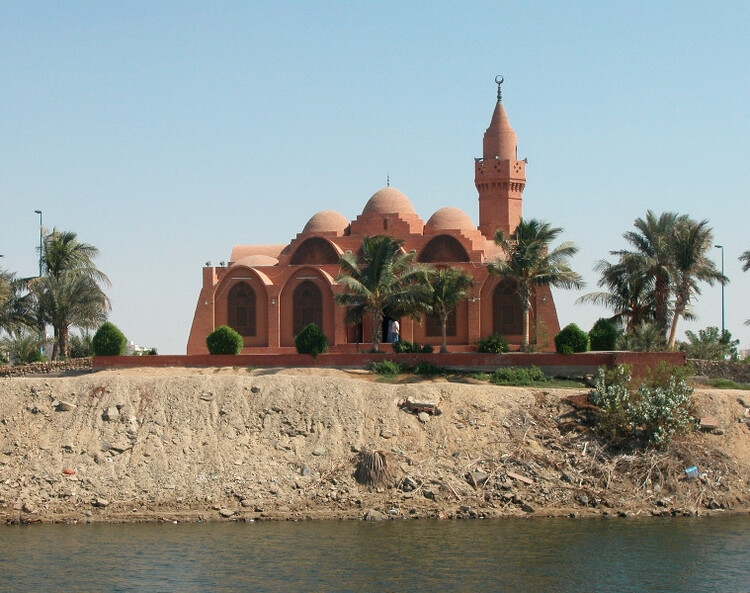 Al-Ruwais Mosque. Image Courtesy of Tamayouz Excellence Award
Al-Ruwais Mosque. Image Courtesy of Tamayouz Excellence Award
Share
Or
https://www.archdaily.com/1035744/abdelwahed-el-wakil-receives-the-2025-tamayouz-lifetime-achievement-award
Egyptian architect Abdelwahed El-Wakil has been named the recipient of the 2025 Tamayouz Lifetime Achievement Award. The recognition was announced during the Tamayouz Excellence Award Ceremony in Baghdad, held as part of the inaugural Arab Architecture Festival. The recognition highlights his contributions to the revival of traditional Islamic architecture, as well as his contributions as a researcher, educator, and mentor whose work has influenced generations of architects across the region and beyond.
Born in Cairo in 1943, El-Wakil studied architecture at Ain Shams University, graduating with distinction in 1965. Early in his career, a mentorship under Egyptian architect Hassan Fathy shaped his approach toward vernacular construction, local materials, and climate-responsive design. This engagement informed his architectural philosophy, which integrates craftsmanship and cultural continuity within modern building practices, aiming to reconcile tradition with contemporary needs and contexts.
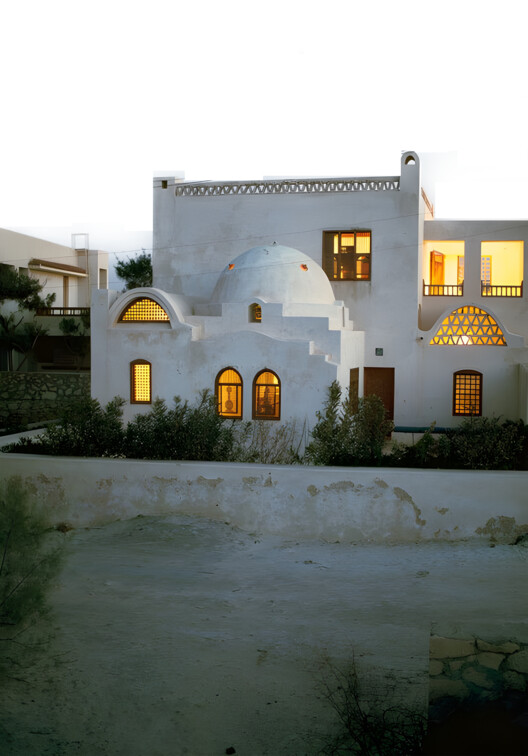 Halawa House. Image Courtesy of Tamayouz Excellence Award
Halawa House. Image Courtesy of Tamayouz Excellence Award
One of El-Wakil’s early projects, the Halawa House in Agami, Egypt, earned the Aga Khan Award for Architecture in 1980. The residence exemplifies his early exploration of vernacular construction methods and climate-responsive design, establishing principles that would define much of his later work. During the 1970s and 1980s, he designed a number of mosques in Jeddah and Madina that played a significant role in shaping Saudi Arabia‘s architectural landscape. The King Saud Mosque, among his most notable works from this period, highlights his refined use of brick, domes, and vaults, reinterpreting traditional forms within contemporary frameworks. El-Wakil’s practice later extended internationally, with projects such as the Oxford Centre for Islamic Studies in the United Kingdom, which integrates cultural identity and spiritual intent within a modern architectural language.
Related Article Tamayouz Excellence Award Announces George Arbid as the 2024 Middle Eastern Architectural Personality of the Year
Throughout his career, El-Wakil has received global recognition for his work. He remains the only architect to have been awarded the Aga Khan Award twice and has also received the Richard H. Driehaus Prize for Classical Architecture in 2009 and the Arthur Ross Award for Excellence in the Classical Tradition in 2023. These acknowledgments reflect his continued engagement with the relationship between tradition and contemporary practice across different cultural contexts.
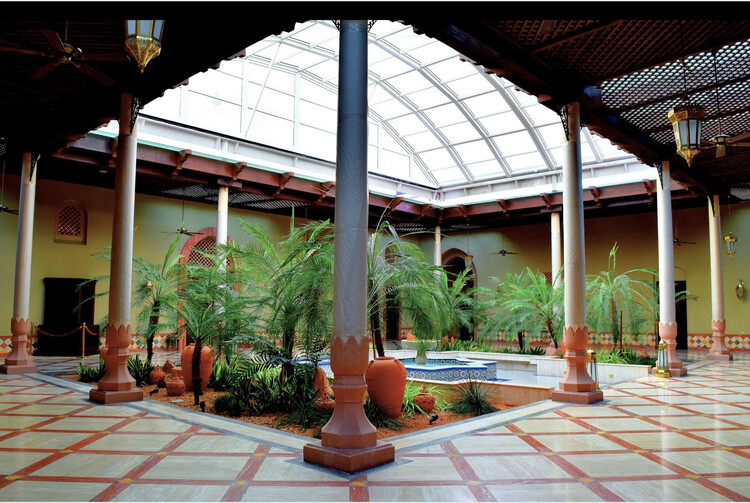 Ash-Shaliheen Mosque. Image Courtesy of Tamayouz Excellence Award
Ash-Shaliheen Mosque. Image Courtesy of Tamayouz Excellence Award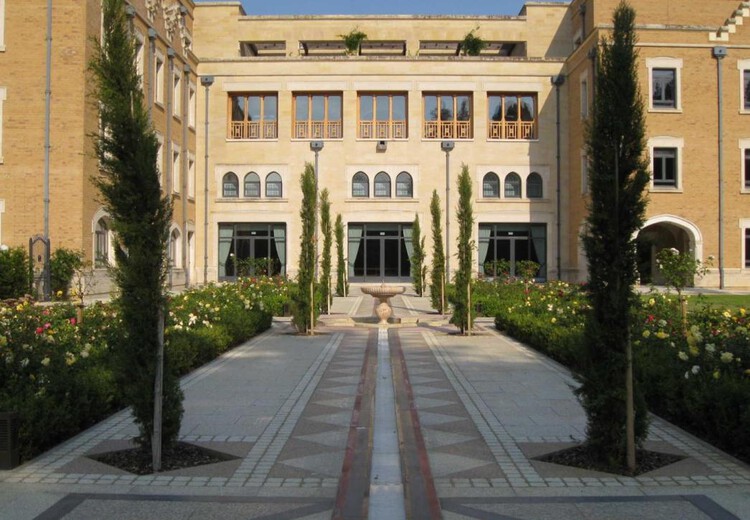 Oxford Centre for Islamic Studies. Image Courtesy of Tamayouz Excellence Award
Oxford Centre for Islamic Studies. Image Courtesy of Tamayouz Excellence Award
The Tamayouz Lifetime Achievement Award recognizes architects whose work has made a lasting contribution to the discipline and the built environment. Since its establishment, the award has celebrated key figures in Middle Eastern architecture, beginning with Iraqi architects Mohamed Makiya in 2014, Rifat Chadirji in 2015, Kahtan Al-Madfai in 2016, Hisham Munir in 2017, and Maath Alousi in 2018. In 2019, it expanded to include architects from the broader Near East and North Africa, honoring Rasem Badran of Jordan and Palestine, followed by Egyptian architect Abdelhalim Ibrahim Abdelhalim in 2020.
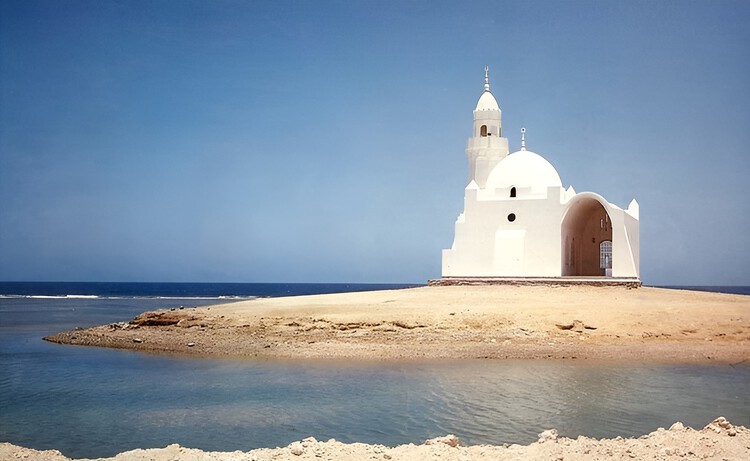 Corniche Mosque. Image Courtesy of Tamayouz Excellence Award
Corniche Mosque. Image Courtesy of Tamayouz Excellence Award
In other similar news, the Créateurs Design Awards (CDA) announced Xu Tiantian, founder and principal architect of DnA_Design and Architecture, as the recipient of the 2026 edition of Le Prix Charlotte Perriand. The Lisbon Architecture Triennale named ReSa Architects from India as the winner of the fifth Début Award, which highlights emerging voices in architecture. Meanwhile, French architect Christian de Portzamparc was selected for the 2026 Andrée Putman Lifetime Achievement Award, also presented by the Créateurs Design Awards.

